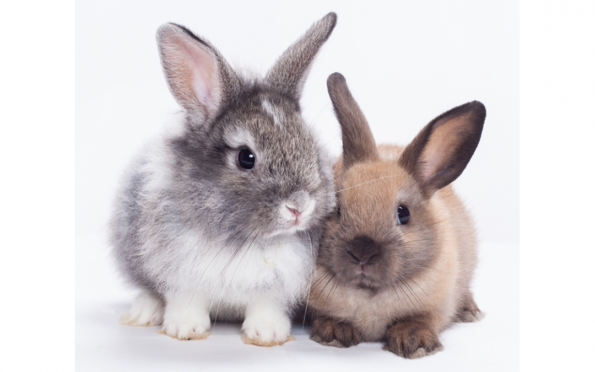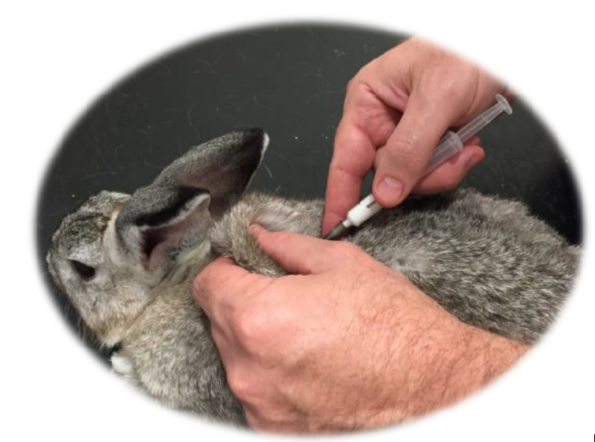
Rabbit haemorrhagic disease (RHD), commonly known as rabbit calicivirus, is a disease seen in rabbits that is fatal for those without immunity. It causes damage to internal organs such as lungs, heart, liver and kidneys by causing rapid development of clots and preventing the passage of blood flow.
Symptoms are not always seen prior to death but can include fever, restlessness, lethargy and poor appetite, bleeding from the nose and/or blood may be seen on the floor where rabbits are housed.
Often infected rabbits will show no signs and die suddenly. A vaccine is available to aid in immunity for rabbits against this disease, but there is currently no cure if an unvaccinated rabbit is infected. All supportive treatment for infected rabbits is given symptomatically but prognosis is poor and death can occur within 1-2 days of infection.
There are currently 3 strains of rabbit calicivirus recognised in Australia which had previously been introduced from other countries as control methods of the wild population. The main strains found to be passed to domesticated rabbits currently have a vaccine available to prevent spread and infection. These vaccines are available at veterinary clinics and a protocol suitable for your rabbit can be discussed at your next visit.
All calicivirus strains can spread easily from infected rabbits in droppings, urine, secretions from the eyes and nose, and at mating. Spread can also occur from contact with contaminated objects such as food, clothing, cages, equipment, insects, birds and rodents.
It can also survive in the environment for up to 7 months, depending on the conditions. All used housing, bedding and food/water bowls should be cleaned with a 10% bleach solution, followed by thorough rinsing to prevent any pets from ingesting cleaning solution toxins.
When placing a pet rabbit outside, cages should be covered with a netting to prevent access by vectors (mosquitos & flies).
If the rabbit has free range of the backyard, avoid early mornings and late afternoons when vectors are usually around in higher numbers.

Flea prevention can be used to help control of these biters. Revolution or advantage are over the counter products that are available for the use on rabbits. Check with your veterinary staff before applying these products to your pets.
The disease cannot be transmitted to humans but it is important to wash hands and clothing after handling rabbits to prevent possible spread of any disease.
If you have any questions or concerns about your pet rabbit, contact the Gisborne Veterinary Clinic on (03) 54282805




